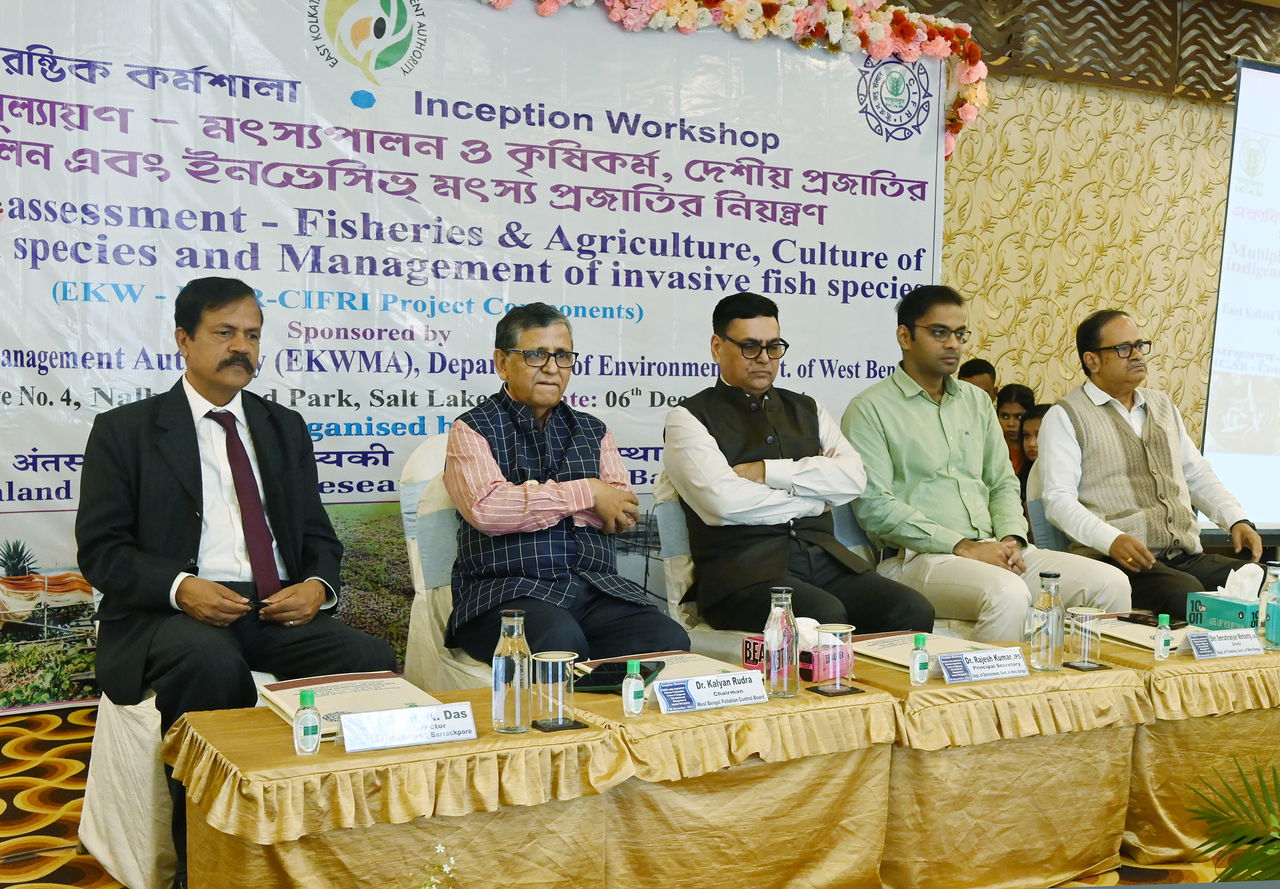
The Inception Workshop for the project titled ‘Multiple Value Assessment - Fisheries & Agriculture, Culture of Indigenous Fish Species, and Management of Invasive Fish Species’ was successfully held on December 6, 2024, at Nalban Food Park, Salt Lake, Kolkata. The event saw the presence of dignitaries, including Dr. Rajesh Kumar, IPS, Principal Secretary, Department of Environment, West Bengal, as the Chief Guest. Dr. Kalyan Rudra, Chairman of the West Bengal Pollution Control Board (WBPCB), and Atanu Kumar Roy, Senior Special Secretary, Department of Fisheries (DoF), West Bengal, graced the occasion as Special Guests.
The workshop also welcomed Smrutiranjan Mohanty, IAS, Director, DoF, West Bengal, and Sarmistha Das, IAS, Managing Director of BENFISH, as honoured guests. Other officials from key organizations such as EKWMA, WRIDD, KMC, WBPCB, and ICAR institutes, among others, participated, showcasing a unified commitment to the project’s objectives.
Project Overview
The project, led by ICAR-Central Inland Fisheries Research Institute (ICAR-CIFRI) and funded by the East Kolkata Wetlands Management Authority (EKWMA), focuses on the ecological and socio-economic sustainability of the East Kolkata Wetlands (EKW). It aims to address fisheries, agriculture, and the livelihoods of nearly 200,000 beneficiaries dependent on the wetlands. Since its inception in December 2023, 206 of the 254 identified water bodies (bheries) have been sampled, with detailed analyses conducted on water resources, soil quality, fisheries ecology, and invasive and indigenous fish species.
Key activities under the project include:
-
Development of aquaculture practices and hatchery planning.
-
SWOT analysis of the fisheries sector.
-
Addressing marketing and resource leasing systems.
-
Enhancing stakeholder knowledge through field demonstrations and training programs.
The project’s execution, which will continue until 2027, aims to ensure sustainable livelihoods while preserving the wetlands as a Ramsar Site of global importance.
Technological and Ecological Focus
Dr. Basanta Kumar Das, Director of ICAR-CIFRI, emphasized the integration of advanced technologies like drone systems for wetland mapping, fish health management, and pollution control. These efforts align with CIFRI's ongoing research on the wetlands' ecology and biodiversity to establish sustainable management practices.
Dr. Kalyan Rudra highlighted the critical role of EKW as Kolkata’s 'kidney,' urging stakeholders to prevent encroachment and address issues like reduced wastewater flow during pre-monsoon seasons. He also underscored the wetlands' importance in mitigating extreme climate scenarios.
Exploring New Opportunities
Dr. Rajesh Kumar expressed satisfaction with CIFRI’s findings of an absence of heavy metals in fish species and encouraged exploring innovative revenue sources such as makhana cultivation and floating solar power production within the wetlands.
Strengthening Livelihoods and Conservation
The interactive session with farmers, scientists, and state departments provided valuable insights for the sustainable development of EKW. The collaborative efforts aim to balance ecological preservation with improved productivity and livelihood security for the wetland's dependent communities. This project reflects a concerted effort to address ecological challenges, foster technological integration, and ensure the conservation of the East Kolkata Wetlands for future generations.
















